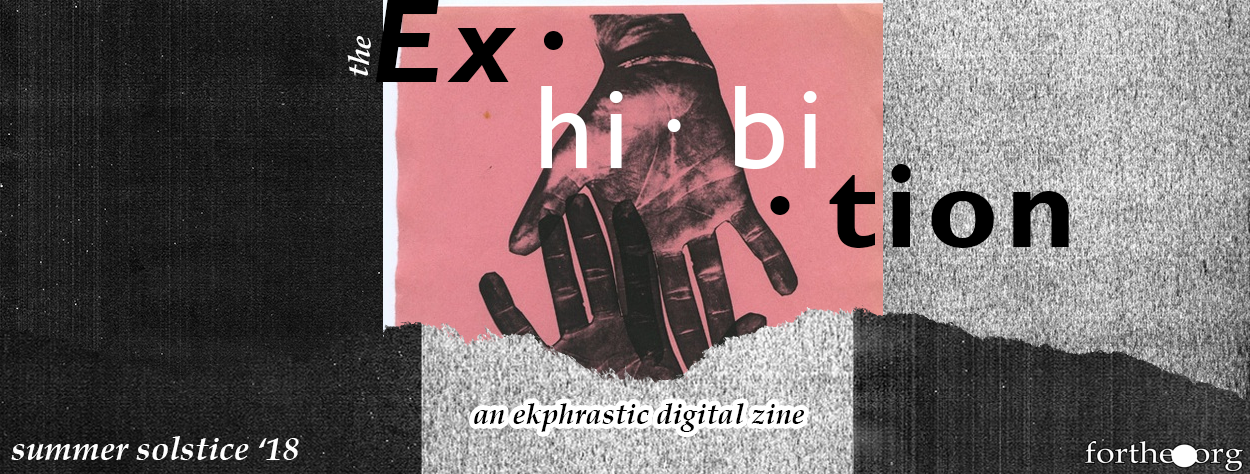

The Ex·hi·bi·tion is a seasonal contest/digital zine that asks Long Beach artists of every form to creatively respond to one (or all) of the three pieces presented. We hope to build a space that imitates the conversational elements of life through art. By responding to each other’s work, we creators in the city will form a communication chain that spans across demographics, geographies, and ideologies through a wide variety of artistic mediums.
Each season, several pieces will be selected for publication, and from those, three will move on as inspiration for the following season’s artists and will also win a $44 cash prize.
To participate is simple: Choose one exhibit (or all) to riff off of, create your own work in response, and submit it by 11:59 p.m. on June 15th. We welcome all genres and mediums.
Click on an artist below to check out the inaugural exhibits.
If you have any questions, please email us at editors@forthe.org or contact us through Facebook Messenger. We look forward to hearing from you!
The Ex·hi·bi·tion is a seasonal contest/digital zine that asks Long Beach artists of every form to creatively respond to one (or all) of the three pieces presented. We hope to build a space that imitates the conversational elements of life through art. By responding to each other’s work, we creators in the city will form a communication chain that spans across demographics, geographies, and ideologies through a wide variety of artistic mediums.
Each season, several pieces will be selected for publication, and from those, three will move on as inspiration for the following season’s artists and will also win a $44 cash prize.
To participate is simple: Choose one exhibit (or all) to riff off of, create your own work in response, and submit it by 11:59 p.m. on May 31 via We welcome all genres and mediums.
Click on an artist below to check out the inaugural exhibits.
If you have any questions, please email us at editors@forthe.org or contact us through Facebook Messenger. We look forward to hearing from you!
Dave Williams head shot courtesy of Sarah Lim.
Copyright © 2024 FORTHE.org. All rights reserved.






